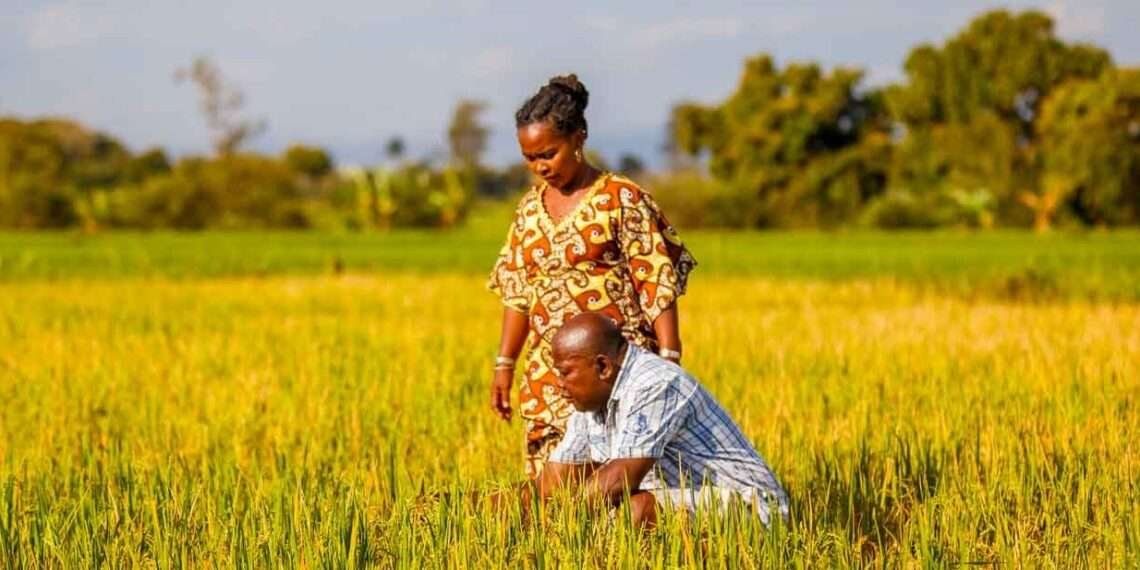Oxford Business Group (OBG), a business intelligence and consultancy firm has launched a new focus report titled “Agriculture in Africa 2022”, this is the third study of the group devoted to this significant theme for the continent and produced in collaboration with OCP Group, the leader in plant nutrition and the world’s first producer of phosphate-based fertilizers.
With Africa’s population expected to double by 2050, according to the World Bank, and food demand expected to grow by 55% by 2030, the challenge of food security is a significant issue, where 85% of food is nowadays imported, according to data published by the United Nations Conference on Trade and Development (UNCTAD).
While the continent has the world’s fastest-growing agricultural sector, with an average annual growth rate of 4.3% since 2000, the development of the vast amount of uncultivated arable land will not be enough to meet the growing demand for food. OBG’s Focus Report explores the various possibilities and concrete solutions available to meet the food needs of the population while at the same time integrating the sector into a sustainable and climate change-friendly development.
Increasing production will not be possible without increasing productivity. The report highlights the need for circular and green economy practices, such as converting organic waste into productive inputs or recycling water, alongside climate-smart agriculture intervention.
It also stresses that boosting productivity and increasing incomes for smallholders, who produce 80% of the food in sub-Saharan Africa, requires greater use of renewable energy technologies and increased support for the institutions that generate them, including research, development, and engineering systems, lamenting the lack of funding currently available for these ecosystems. Increasing productivity also helps to preserve ecosystems and biodiversity.
The study also argues that while Africa has the potential to feed the world’s population in the coming years, to accomplish this, the land must be developed sustainably by also addressing issues such as deforestation and inefficient fertilizer use. This would require adopting a green economic model characterized by low-carbon, resource-efficient, and socially inclusive.
Report includes four interviews with renowned experts
Hanane Mourchid, Executive Director for Sustainability and Green Industrial Development of OCP Group, offers insights into how the circular economy and sustainability policies will help address the African agriculture challenges. In addition, she explains the importance for companies to implement sustainability policies and how the private sector and academia can work together to implement innovative farming practices.
Tony Siantonas, Director, Scaling Positive Agriculture, World Business Council for Sustainable Development, presents solutions for enhancing sustainability and food security, emphasizing the importance of maintaining soil health and the need for long-term investment and innovation.
Kaushik Majumdar, Director-General, African Plant Nutrition Institute, advocates smart and calibrated plant nutrition to counter the adverse effects of climate change and discusses the critical role of public-private partnerships in R&D and knowledge transfer in the African agricultural sector.
Finally, Hicham El Habti, President of the Mohammed VI Polytechnic University (UM6P), explains how technology and innovation can help farmers.
A range of solutions exist to enable African agriculture to thrive
For the third consecutive year, OBG has been supported by OCP Group to produce this multifaceted and insightful analysis. An illustrative video and podcast will complement the report’s key findings, prospects, challenges, and issues for the sector.
Karine Loehman, OBG’s Managing Director for Africa, welcomed the release of this comprehensive report saying: “A range of solutions exist to enable African agriculture to adapt to the food, economic, and climate challenges. There is an urgent need to invest in human capital so that people can fully reap the benefits of the technological advances and innovative and dynamic financing instruments that exist today.’’
“Agriculture in Africa 2022” is part of a series of tailored studies that OBG is currently producing, including ESG Intelligence and Future Readiness reports and other highly relevant, go-to research tools, such as country-specific Growth and Recovery Outlook articles and interviews.
READ ALSO: Fisheries Governance to Improve as Stakeholders Receive Training on IUU





















